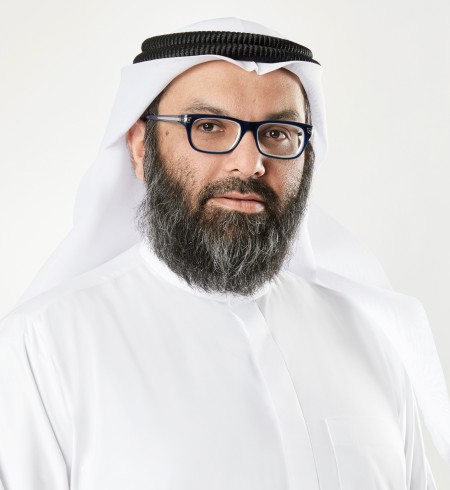Perspectives on WRC-19
Arab Spectrum Management Group’s Perspectives on the WRC-19
Q. What is the significance of WRC-19 to the Arab Region’s future digital development plans?
A. WRC-19 will be one of the most important ICT events held in the Arab region. It is coming in a transformational era where countries are considering and launching different future digital development plans to foster and benefit from the fourth industrial revolution.
WRC-19 will make important international decisions and possible changes to Radio Regulations covering different radiocommunications services and applications such as IMT & RLAN in Mobile Service, ESIMs in Fixed Satellite Service, and VDES in Maritime Service.
Q. What relevant preparatory milestones has the Arab Region been able to achieve since WRC-15?
A. Arab Spectrum Management Group has succArab Spectrum Management Group (ASMG) has successfully held four meetings since the end of WRC-15 and throughout the course of preparations for WRC-19. It is important to highlight that while ASMG’s main focus has been on preparing for the WRC, ASMG has also taken advantage of its meetings to share various experiences of Administrations and proposals towards harmonizing the use of frequency bands for some services and applications. ASMG has also provided some technical studies pertaining to various challenges associated with un-harmonized utilization of specific frequency bands.
Positions on WRC-19 agenda items are taken based on the interests of the ASMG Administrations. Generally, these positions take into consideration the same basic principles that are followed by all regional groups: to have the most efficient use of spectrum; to accommodate new developments and new technologies in the industry; and to protect the existing services.
Currently, all ASMG Administrations (regional regulators) are looking at all WRC-19 agenda items and issues to be discussed in the conference. All topics are important, and ASMG Administrations have their views on all the agenda items and issues.
Q. What outcomes are anticipated by the regional Regulators and the Private sector?
A. Currently, all ASMG Administrations (regional regulators) are looking at all WRC-19 agenda items and issues to be discussed in the conference. All topics are important, and ASMG Administrations have their views on all the agenda items and issues. However, in terms of priorities, we could indicate that outcomes of Agenda Item 1.13, which specifically refers to the identification of frequency bands for 5G applications (or what is called IMT2020) is of great importance for many ASMG Sdministrations. This Agenda Item has direct implications for the Arab region’s future digital development plans, in which 5G has been deemed to be an important transformational force.
The Private sector, specifically Operators, is aligned with the regulators’ views on various proposals and considerations, and is mainly looking into the new deployments of IMT, ESIM, etc., and also wishes to ensure the protection of and return on investment on their existing operating systems and infrastructure.
ASMG has taken into account the important participation by all industry stakeholders, and this will increase the possibility of achieving unified decisions on harmonized bands in Region 1.
Q. In the wake of WRC-19, what due considerations for future ICT development efforts are merited as the world moves toward digital economy?
A. ASMG is fully aligned with the main aim of revising relevant RR articles, which are essential to keep this global as well as regional harmonization. Besides the works undertaken by ITU-R Study Groups to promote the frequency-wide harmonization which helps in facilitating future ICT development and digital economy, the Arab region has made direct contributions and is fully attentive to future ICT development needs, globally. There are number of agenda items which together will shape the future of a digital lifestyle and digital economy around the world.
The WRC will address in addition to 5G the intelligent transportation system frequency ranges, future of railway communications, HAPS, RLAN, among others.
Global spectrum harmonization is thus essential for achieving economies of scale, roaming, and ensuring interoperability. The WRC decisions should bring regulatory stability to the standards, equipment manufacturing and deployment of new networks.
Global spectrum harmonization is thus essential for achieving economies of scale, roaming, and ensuring interoperability. The WRC decisions should bring regulatory stability to the standards, equipment manufacturing and deployment of new networks.
Q. How do you see the post WRC-19 situation within the industry, and what can be anticipated for WRC-23?
A. All regional groups have started discussions on WRC-23’s priorities of agenda items and studies which are not only limited to IMT possible studies, but to other radiocommunications services such as Fixed-Satellite Services, etc.
ASMG has already initiated discussions on future agenda items related to ESIMS in Q and V bands and also IMT, in particular the sub-700 MHz Band as well as the primary Mobile Allocation in the 3300-3800 MHz range with some reservation from a few Arab Administrations on the 3300-3400 MHz band.
At its final meeting, to be held at the end of July 2019, ASMG will make its final decisions on the future WRC-23 agenda items to be supported.
It is important to note that there is always a room for improvement on ITU processes to foster the process and to pace up with rapid industry developments and technology trends. ASMG acknowledges and supports the ITU’s consensus-driven processes, including the WRCs, and fully supports contributions driven by Member States and ITU Sector Members. This process has shown over the time its efficiency to obtain consensus across Member States, despite varying interests, priorities, and needs. However, the pace of new developments, which are imminent in terms of technologies, innovations, and societal trends, will require some improvements to be made to future WRC processes, especially within the scope of WRC-23 preparations.


